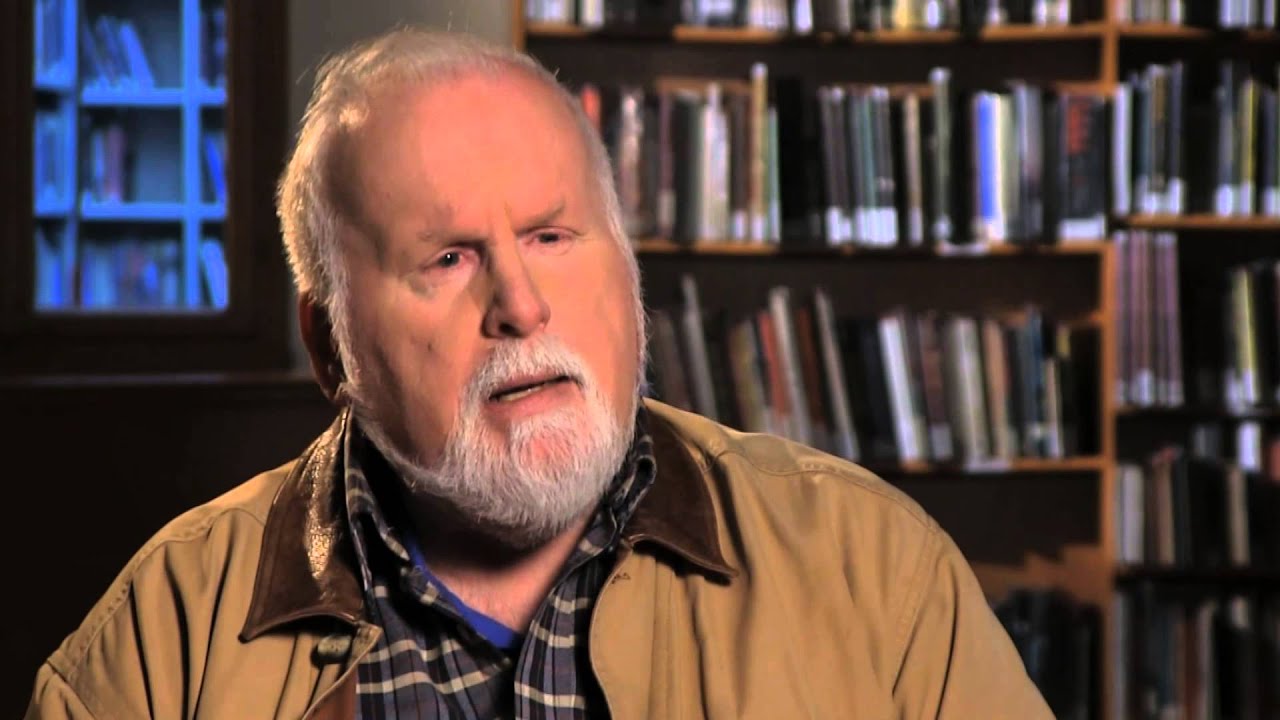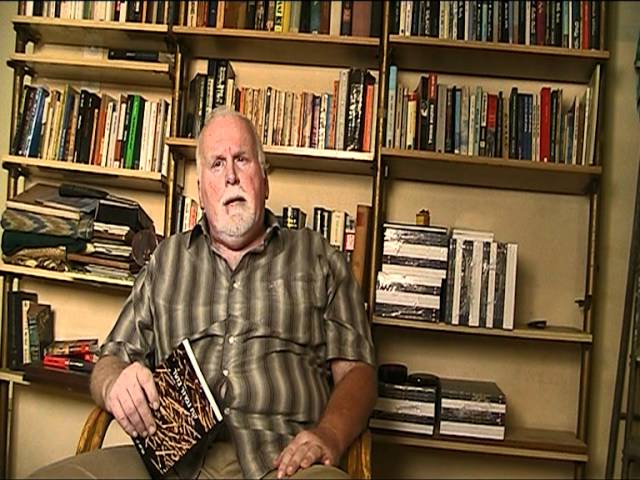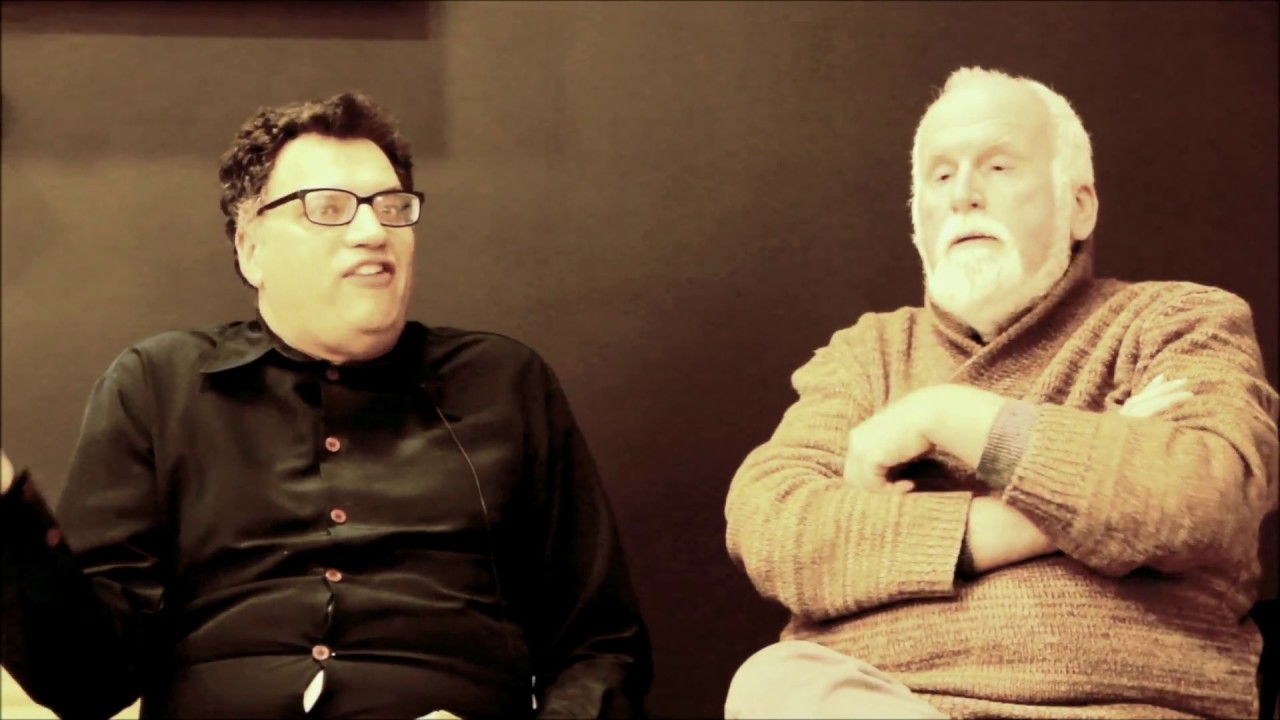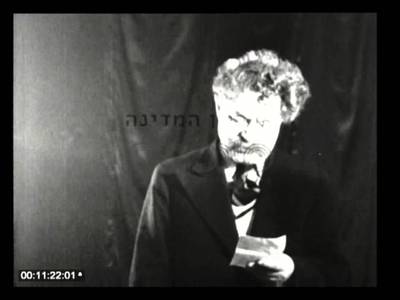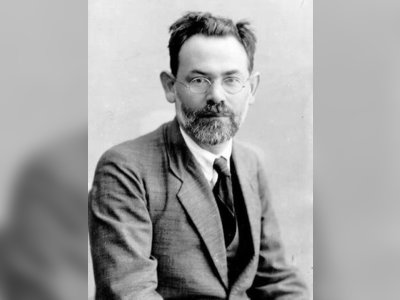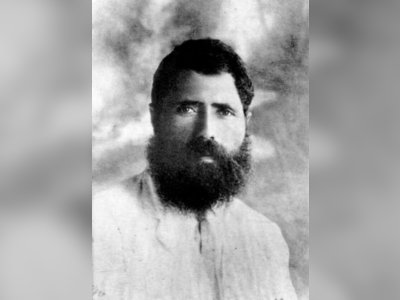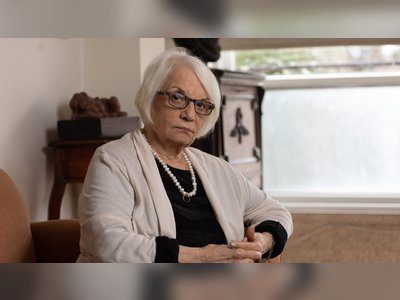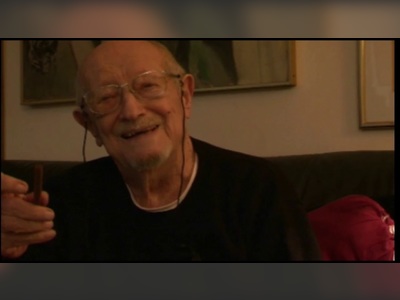Aryeh Krisek: A Life in Words
Aryeh Krisek, born on September 29, 1952, is a prominent Israeli author, playwright, screenwriter, and editor. He has held the position of chief editor at "Keter Publishing House."
Biography
Krisek hails from a family of traders and intellectuals in Lodz, Poland, most of whom tragically perished at the hands of the Nazis. One of his cousins is the renowned Jewish-American director Jean Leimann, who directed one of the early and successful Israeli films in 1935, "L'Chayim Chadashim," which also featured the famous song "Shir Ha'Emek" by Alterman and Sambursky.
Aryeh Krisek grew up and was educated in Holon and Tel Aviv. He graduated from the first drama class at the Kibbutz Seminar, specializing in directing. Even before his military service, he took on small roles in several films, such as David Perlov's "6:42," and wrote and directed a series of video clips titled "HaNose: Violence" for Tel Aviv University's criminology department, led by Professor Shlomo Giora Shoham. He co-wrote and produced short films that won awards, including "Laughter in White Cubes" and "Something More" (directed by Yehuda Levi).
Krisek is the author of over twenty books, some of which have become bestsellers, including "Making Peace," "Buried in Jerusalem," "In a Straight Line," and "Jumpers" (one of the first youth novels to address sexuality). He also wrote "No Harm to Our Forces," "The Man in the Wall" (about the suicide of Housing Minister Avraham Ofer), "Ogera's Light," "The Faithful," "City Resident," "The Summer We Returned," "Written in Sand: The Story of Holon," and many more. He also conducted research and published additional books about city histories, biographies, and more.
In the early 1980s, he led the publication of "Milet" (an Israeli cultural club) founded by "Bartelsman," "Kol," and "Yedioth Ahronoth," a unique attempt to establish a network of book and culture clubs in Israel. Despite immense investment and efforts, "Milet" closed its doors after just seven years. He also served as an advisor for several book publishers.
Krisek regularly contributed columns to numerous newspapers, including "Yedioth Ahronoth," "Maariv," "Haaretz," and "Al HaMishmar." At one point, he operated a website called "Tzav Kri'a" as part of the Israeli Air Force, where he reviewed and commented on books. Some of his short stories were translated into foreign languages and broadcast on the radio, including "Smoke" (performed by Moshe Ivgy), one of the first stories to address the theme of our forces' firepower, and "The Collection" (performed by Mishka Asherov), which delves into the world of collectors of space debris and body parts. His books "In a Straight Line" (with Mordechai Zipori) and the novel "No Harm to Our Forces" focus on the First Lebanon War.
In the late 1970s and early 1980s, Krisek interviewed a series of international writers for Israeli newspapers, including Graham Greene, Siegfried Lenz, Sarah Davidson, Michael Blankfort, Chaim Zeldis, Herbert Lottman, and others.
Krisek served as the scriptwriter and co-producer for the film "The Honey Trap," a political thriller that explored the rise of Jewish underground movements. It was directed by Yehuda Levi and won first place in the Short Film competition in 1977. Krisek's talent for prediction found expression in two of his espionage novels, "Making Peace," which anticipated the assassination of Sadat a year before it happened, and "Buried in Jerusalem," which foresaw the outbreak of the Second Intifada.
He also wrote several scripts for cinema and television and served as a special advisor on various productions. He contributed to radio scriptwriting as well. His radio play, "The Song of a Gazelle," a story of friends fighting against each other and others, was broadcast many times with the participation of Ezra Dagan and Dov Reiser (directed by Nessim Kamhi).
In 1992, Krisek joined forces with musician and director Alex Kagin to establish the 'Israeli Chamber Opera' and produced "The White Rose" (about the resistance movement against Hitler during the Nazi regime) in collaboration with the Israeli Philharmonic Orchestra. It was the first and last production of the Israeli Chamber Opera.
Krisek was implicated in the Nimerudi affair. He was found guilty of conspiracy, harassment, obstruction of justice, and receiving goods dishonestly. He was sentenced to five months in actual prison, ten months suspended, and a fine of 20,000 NIS. He appealed his sentence, but it was rejected. The state also appealed against the leniency of his sentence, which was also denied.
In 2014, following the ruling in the trial of former Prime Minister Ehud Olmert, Krisek published an article titled "There's a Judge in Tel Aviv" in the newspaper "Maariv" and the news website "Department 1," which garnered much attention.
In the article, he praised Judge David Rozen (who presided over Krisek's case) and criticized his involvement in the Nimerudi affair. Between 2013 and 2016, he published a series of articles in "Haaretz." Simultaneously, he contributed articles to "Maariv" and the right-wing website "Mida." His name was mentioned in the indictment of Knesset member and former Minister of Housing Naomi Blumenthal in the bribery case, as someone who attempted to expose what was then perceived as the extortion of her personal driver, who later became the main accuser.
Blumenthal was convicted and forced to retire from political life. In 2006, Krisek initiated and partnered in an attempt to tell the story of Eli Cohen. An agreement was signed with YES Satellite TV, and numerous hours of interviews were filmed at Cohen's secret apartment. However, due to the intervention of the Israeli intelligence agency "Mossad," the production never materialized.
In his writings, he also delved into the "Bus 300 Affair," the case of former Chief of Staff Chaim Bar-Lev (Bar-Lev granted Krisek a series of in-depth biographical interviews), and the "Iran Gate" affair. In August 2008, following the death of former AMAN head Benjamin Gibli (who was referred to as the "senior officer" in the scandal), it was reported that Krisek had written Gibli's version of events in the affair, but the book was never published. Krisek was among the few writers and intellectuals who rallied to defend Dan Ben Amotz following the publication of Amnon Dankner's controversial biography. He continued to do so for many years.
He translated Nathanael West's "The Day of the Locust" and Irwin Shaw's "Nightwork" from English into Hebrew. Krisek's book "In a Straight Line" (together with Mordechai Zipori) was nominated for the Brenner Prize, and his book "Making Peace" was nominated for the Sapir Prize for Literature.
Krisek has four children, including actor Yan Krisek and musician Rotem Bar Or. His wife, Chana Krisek, has served as editor-in-chief of several magazines. In 2012, Krisek sued businessman Michael Gadish for not paying him for a screenplay he wrote for Gadish's company. Gadish claimed that he had paid Krisek in full for the screenplay.
Aryeh Krisek remains a prominent figure in Israeli literature, known for his diverse and often controversial writings that tackle significant historical and political events.
- אריה קרישקhe.wikipedia.org
